While Citroën was busy trying to develop a suitably innovative vehicle known as Projet F with a wankel motor and torsion bar suspension to fit between it’s successful small 2CV and and successful large DS models Renault’s Gaston Juchet was developing today’s featured Renault 16 with an aluminium straight 4 motor and torsion bar suspension for exactly the same market.
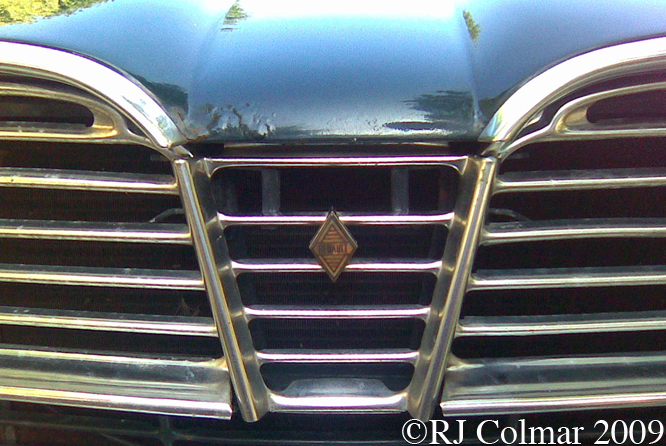
Like the Renault 4 launched in 1961 the 16 featured front wheel drive, umbrella stick gear change and an asymmetrical wheelbase thanks to the torsion bar suspension.
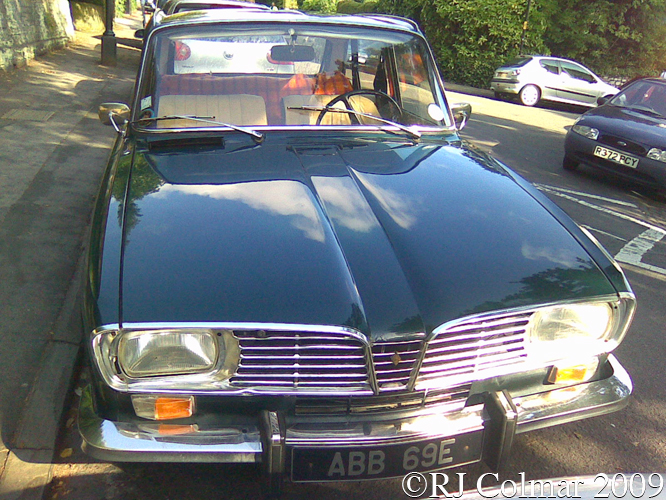
Another similarity with the smaller Renault sibling was the five door body style, neither car was offered with anything else for private use, though in the case of the 16 the rear door was noticeably more inclined toward the front.
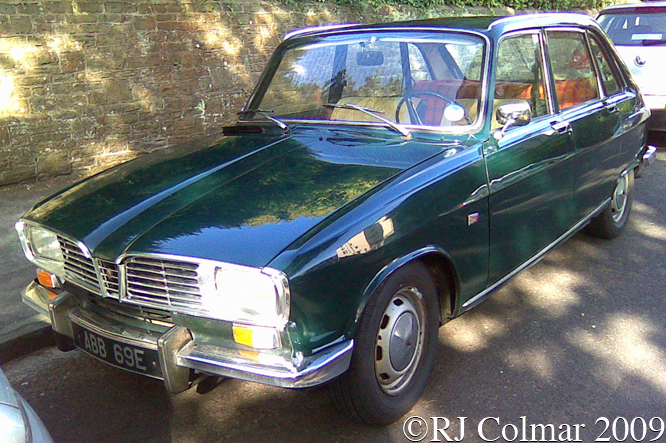
Motoring Illustrated in May 1965 reported that “The Renault Sixteen can thus be described as a large family car but one that is neither a four door saloon (sedan) and nor is it quite an estate (wagon). But, importantly, it is a little different.”
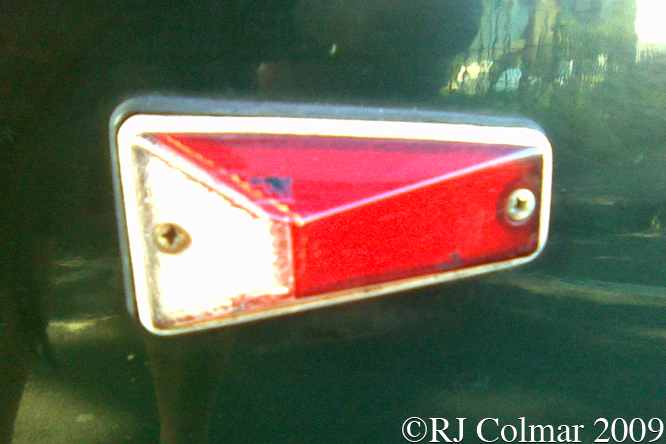
The important neither nor word the journalist was struggling for was of course “hatchback” a term that was not coined as a body style until the early 1970’s.
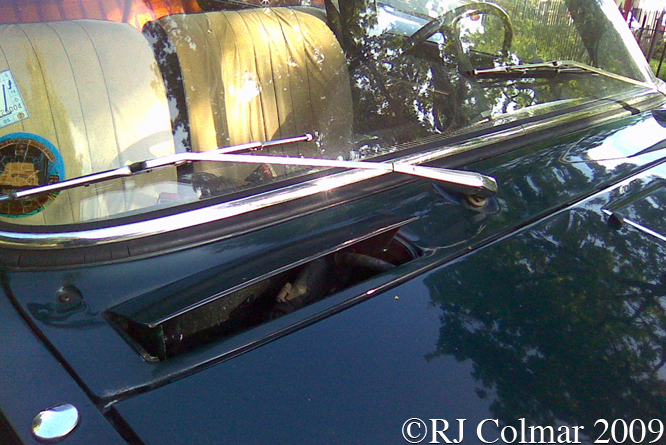
European Journalists were so impressed with the Renault 16 that it became the first French car, after the Rover 2000 and Austin 1800, to named European Car of The Year in 1966.
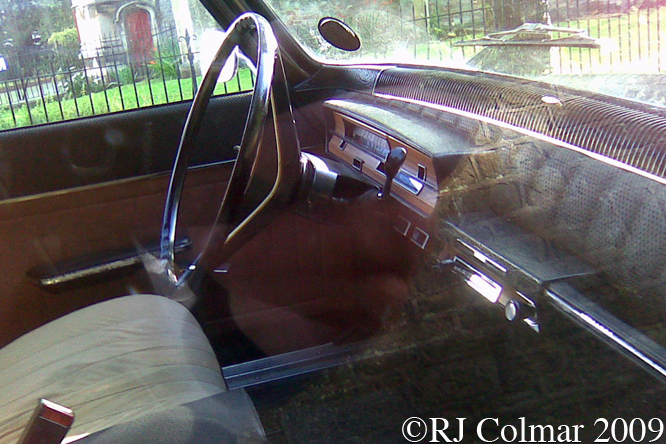
Initially the Sixteen was launched in Grand Luxe and Super variants both powered by a 1470cc / 89 cui motor producing 54 hp.
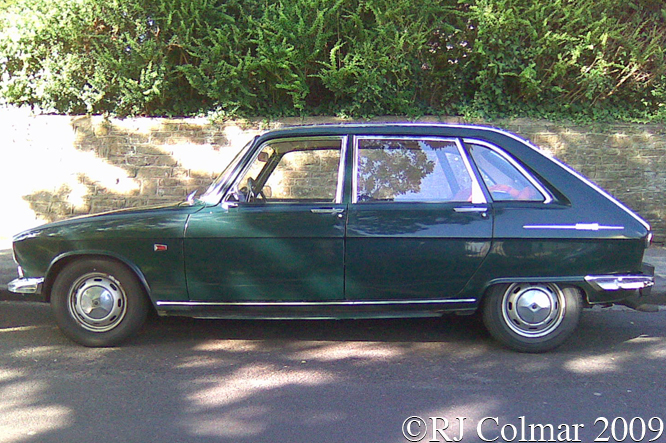
At the 1968 Geneva Motor Show the TS version was launched with a 1565cc / 95 cui engine, an all-new instrument panel that included; a tachometer, water temperature gauge, two-speed windscreen wipers, column shift, rear defroster, passenger reading light, and optional electric powered windows.
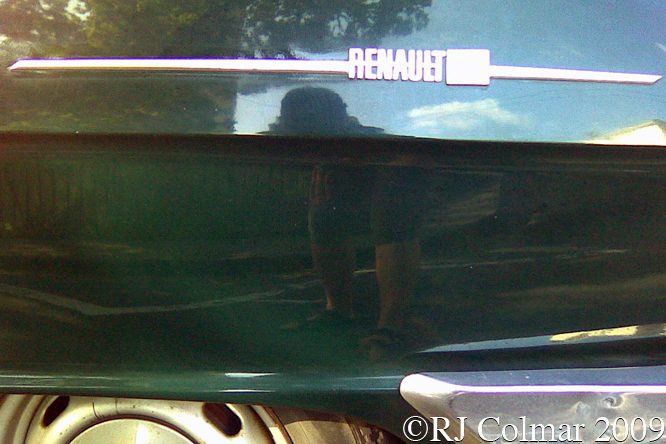
In 1970 no less a luminary than Stirling Moss was quoted as saying “”There is no doubt that the Renault 16 is the most intelligently engineered automobile I have ever encountered and I think that each British motorcar manufacturer would do well to purchase one just to see how it is put together”.
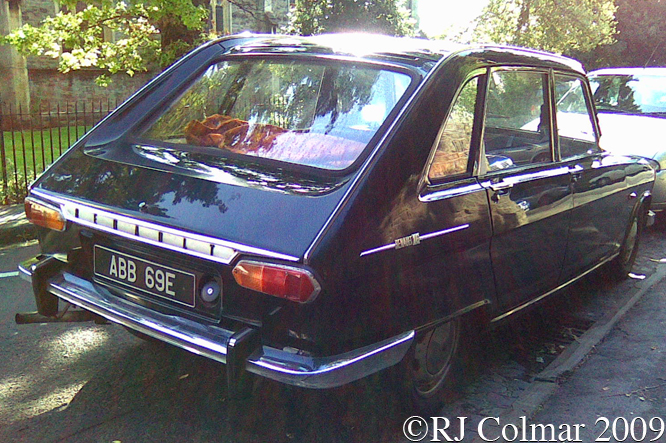
By the time production of the facelifted Renault 16 ceased in 1980 over 1.8 million examples had been built, and most European manufacturers had a similar 5-door hatchback in their showrooms.
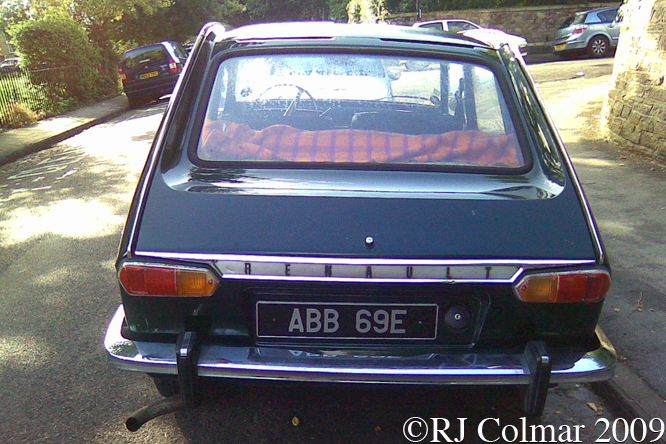
It is said that when the Renault 16 was launched Citroën cancelled it’s Projet F because of the similarities of the 16 and F amid rumours of industrial espionage, however these remain unfounded possibly in the light of the similarities of the Renault 4 and 16, possibly because the truth was the planned Wankel engine Citroën hoped to use could not be made as reliable as they would have liked.
Unlikely as it may seen among my earliest motor racing memories was seeing a Renault 16 being raced in Zambia at typically Gaulish angles on the corners by a chap called de Decker who tried in vain to keep up with a similarly standard Alfa Romeo 1750 GTV driven by Sergio Pavan at Nchanga.
The left hand drive non UK spec ’68 model year Renault 16 TX seen in these photographs taken in Bristol was not registered in the UK until October 2008.
Thanks for joining me on this “Neither Nor” edition of “Gettin’ a li’l psycho on tyres” I hope you will join me again tomorrow. Don’t forget to come back now !

